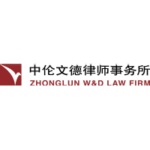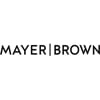-
How is the writing of insurance contracts regulated in your jurisdiction?
Any person carrying on “insurance business” in or from within Bermuda must be registered as an insurer under the Insurance Act 1978 (Insurance Act) by the Bermuda Monetary Authority (BMA), an independent, non-governmental body which is responsible for the licensing and supervision of insurers.
“Insurance business” is defined as the business of effecting and carrying out contracts to:
- protect persons against loss or liability to loss in respect of risks to which they may be exposed; or
- pay a sum of money or render money’s worth on the occurrence of an event and includes reinsurance business.
Once registered, insurers must comply with all applicable provisions of the Insurance Act and with all applicable Rules, Regulations and Codes of Conduct published or promulgated by the BMA pursuant to powers granted to it by the Insurance Act.
The Insurance Act provides for (among other things):
- Minimum statutory criteria of registration.
- Prudential requirements.
- Supervisory and reporting requirements.
- Enforcement powers of the BMA.
- Fit and proper requirements as to shareholder controllers and officers.
- Regulation of the declaration of dividends and reduction of capital, maintenance of separate business accounts for dual licence holders.
The exception to the above requirements are a small number of overseas companies who hold permits issued under a distinct piece of legislation by the Minister of Finance and who may operate via agents in Bermuda as “non-resident insurance undertakings” (NRIUs).
In terms of the “writing” of insurance contracts as agent (rather than as principal), insurance agents are regulated in Bermuda. They must apply to the BMA for registration as agents under the Insurance Act. An insurance agent must meet the minimum criteria for registration, including fitness and propriety of controllers. They must maintain adequate professional indemnity insurance but are not otherwise subject to any prudential requirements. Insurance agents must comply with specific Codes of Conduct promulgated by the BMA.
-
Are types of insurers regulated differently (i.e. life companies, reinsurers?)
Types of insurer are regulated differently. Most notably, Bermuda adopts a bifurcated approach to the regulation of limited purpose insurers and commercial insurers. Limited purpose insurers comprise captives, special purpose insurers (SPIs) and collateralised insurers (CIs). Furthermore, even within the broad categories of captive insurers and commercial insurers, regulation differs depending on the applicable classification of the insurer within its category. The bases of classification are discussed below.
There is also a third category of licence classes, reflecting Bermuda’s propitious environment for development of InsurTech and the use of digital assets, the innovative insurer classes.
Within those three categories (commercial insurers, limited purpose insurers and innovative insurers) the regulation of insurers carrying on long-term (life) business is different from the regulation of insurers carrying on general (P&C) business.
An overview of the regulation of each category, and some details of the differences in regulation within each category, are set out below.
Commercial Insurers
Bermuda’s regulation of commercial insurers adheres to international standards and best practices relating to insurance regulation and supervision, including risk- based prudential requirements set according to the Bermuda Solvency Capital Requirement (BSCR). These high standards have been internationally recognised, and Bermuda is one of only two non-EU domiciles whose regulatory regime for commercial insurers has been recognised as fully equivalent with Directive 2009/138/EC on the taking-up and pursuit of the business of insurance and reinsurance (Solvency II Directive) by reference to reinsurance, group supervision and solvency capital. It is also on the basis of its adherence to international standards in the regulation of commercial insurers that Bermuda was granted Reciprocal Jurisdiction status (effective 1 January 2020) by the US National Association of Insurance Commissioners.
Bermuda has six different types of commercial insurer licence comprising three long-term (life) business commercial licences and three general (P&C) business commercial licences:
- The general business commercial licence classes are Classes 3A, 3B and 4. The difference between Class 3A and Class 3B general insurers turns on the absolute and relative amount of the “unrelated” business of the insurer. A general business insurer 50% or more of whose net premiums written or loss and loss expense provisions represent unrelated business is registrable as a Class 3A insurer if its total net premiums written from “unrelated” business are less than BMD50 million. It is registrable as a Class 3B insurer if they are not. A Class 4 insurer must maintain a total statutory capital and surplus of at least BMD100 million, carries on (exclusively or among other business) excess liability business and/or property catastrophe reinsurance business and is not registrable as a captive Class 1 or Class 2 insurer (see below).
- The three long-term business commercial insurer licence classes are classes C, D and E. The classification is based on total assets under management, as follows:
- Class C is the applicable class if total assets are less than BMD250 million;
- Class D, if they are more than BMD250 million but less than BMD500 million; and
- Class E, if they are more than BMD500 million.
Graduated prudential requirements apply to each class of general business insurer and to each class of long-term insurer.
As between the regulation of commercial insurers with a general business licence and commercial insurers with a long-term business licence, there are numerous differences in prudential requirements, such as the basis for setting the minimum margin of solvency (which is based on assets under management for long-term insurers and premium income for general business insurers) and the discounting of reserves in the calculation of technical provisions.
Reinsurers are not prudentially regulated differently from insurers.
Limited Purpose Insurers
Recognising their more limited and less complex risk profile, the prudential and supervisory regimes for limited purpose insurers are less onerous than those applicable to commercial insurers. Limited purpose insurers are not subject to the Solvency II-equivalent standards that apply to commercial insurers.
Captive Insurers
Captives are subject to different sub-classifications and slightly differing regulatory regimes depending on whether they are:
- Single-parent (Class 1 for general business captives, Class A for long-term business captives).
- Multi-parent (Class 2/Class 3/Class B)
and/or how much “unrelated” business the captive writes (if any). For example, a Class 1 captive can write no unrelated business, whereas a Class 2 captive can write between 20% unrelated business.
Insurers Carrying on Special Purpose Business (Insurance-Linked Securities)
Special purpose insurers (SPIs) and collateralised insurers (CIs), used in insurance-linked securities (ILS) transactions, have a largely distinct regulatory regime. SPIs and CIs are fully-collateralised but the interpretation of the requirement varies as between the two. SPIs have only a notional minimum margin of solvency and paid up capital requirements. SPIs are subject to more pragmatic regulation. The licence class is more suitable for products with a less complex risk profile. CIs have more robust prudential requirements and are the gateway through which ILS structures can be used for a wider range of product types and cedants. Supervision of SPIs and CIs is light touch on the understanding (which the BMA must be satisfied about before registration) that the sponsoring cedant is sufficiently well informed about the quantity and quality of the SPI or CI’s assets and the risks involved in using an SPI or a CI. Purchasers of securities issued by the SPI or CI must be sophisticated investors that the BMA expects to be persons satisfying one or more criterion, among others being high income private investors, high net worth private investors, or sophisticated private investors.
Innovative Insurers
There are three licence classes for insurers carrying on insurance business in an innovative manner, the Class IGB, Class IIGB and Class ILT.
Class IGB and Class ILT insurers are companies wishing to experiment with new technologies and/or provide innovative products, services and delivery mechanisms to
a limited number of policyholders. For a limited period of time, each IGB or ILT licence holder is placed in the insurance regulatory sandbox which is a bespoke legislative and regulatory environment with requirements tailored by the BMA for each innovative insurer (based on the business model submitted during the application process). The BMA will determine the conditions of the proof-of-concept stage as its duration, the testing parameters and reporting requirements. The sandbox provides relevant protection to policyholders and the industry for a limited period of time. If the innovative insurer successfully demonstrates the feasibility of its business model, it will be able to apply its insurance licence to a general business licence for IGB insurers or long-term business classes for ILT insurers.
The prudential requirements applicable to Class IGB and Class ILT insurers are determined on a case-by- case basis by the BMA applying the proportionality principle between regulatory requirements applicable to Class 1 or Class A, insurance manager, broker or agent that fit with the specific business tested in the sandbox by the Class IGB or Class ILT insurer.
The IIGB Class is a non-sandbox class of innovative insurer. The IIGB class regulatory framework is primarily designed for insurance business models involving the use of digital assets. However, the BMA makes a case by case assessment to allow other innovative business models (not necessarily making use of digital assets) to use the IIGB regulatory framework if appropriate.
-
Are insurance brokers and other types of market intermediary subject to regulation?
Insurance brokers, insurance agents, insurance managers and insurance market providers are subject to regulation. These terms are defined below:
- “Insurance manager” is defined as a person who, not being an employee of any insurer, holds himself out as a manager in relation to one or more insurers, whether or not the functions performed by him as such go beyond the keeping of insurance business accounts and records.
- “Insurance agent” is defined as a person who with the authority of an insurer acts on its behalf in relation to any or all of the following matters, that is to say, the initiation and receipt of proposals, the issue of policies and the collection of premiums, being proposals, policies and premiums relating to insurance business.
- “Insurance broker” is defined as a person who arranges or places insurance business with insurers on behalf of prospective or existing policy-holders.
- “Insurance market providers” is defined as a person who operates a platform, of any type, established for the purpose of buying, selling or trading contracts of insurance.
A registrant must meet the minimum criteria for registration, including fitness and propriety of controllers, conduct of business requirements, maintenance of the reputation of Bermuda and cooperation with regulatory authorities. Registrants must maintain adequate professional indemnity insurance but are not otherwise subject to any prudential requirements. Insurance intermediaries must comply with specific Codes of Conduct promulgated by the BMA.
Insurance salesmen are also regulated.
-
Is authorisation or a licence required and if so how long does it take on average to obtain such permission? What are the key criteria for authorisation?
As noted in response to question 1, any person carrying on insurance business (which includes reinsurance business) in or from within Bermuda must be registered as an insurer under the Insurance Act.
Registration applications are filed for consideration by the Insurance Assessment & Licensing Committee (IALC) of the BMA. The average registration application time varies depending on whether the entity is to be registered as a limited purpose insurer or as a commercial insurer. A limited purpose insurer may be registered within two weeks. A commercial insurer registration application can be expected to take at least 6 weeks, and more than that if the insurer has a more complex risk profile such as a long-term insurer using the “scenario based analysis” in the calculation of technical provisions. See our answer to question 2 regarding the varying requirements applicable to Bermuda’s insurer licence classes.
The application must include
- business plan, including risks to be written, beneficial ownership details, details of directors, officers, senior management and proposed staffing and proposed capitalisation
- audited financial statements of corporate shareholders and background information, personal declarations, CVs and background information regarding directors, senior management and key functionaries,
- details of the governance framework explaining board oversight and accountability over key control functions, details of board committees
- pro forma income statements and balance sheets on a five year basis, BSCR (see question 11) projection models for the first and fifth year to demonstrate that the ECR (see question 11) will be maintained at all times
- capital management policy , investment guidelines, details evidencing ability to comply with the Insurance Code of Conduct
- outwards reinsurance details
- support for assumptions used in the pro forma income statements and balance sheets, including actuarial or feasibility study supporting projected loss reserves
- details of products, distribution methods and channels, risk appetite
- information to demonstrate appropriateness of systems of risk management and internal controls, outsourcing arrangement, IT systems, policies and procedures
- copies of service agreements and outsourcing agreements
An applicant will need to satisfy the BMA that it will be able to comply with the statutory “minimum criteria” of registration, including:
- It meets its minimum margin of solvency (MMS) and (if applicable) ECR
- Its paid up share capital equals or exceeds the statutory minimum amount applicable to it
- the board of directors and senior management have adequate knowledge and expertise
- Officers and controllers (including shareholder controllers) are fit and proper persons to perform their functions
- Appropriate corporate governance policies and processes are established given the nature, size, complexity and risk profile of the insurer
- The business of the insurer will be conducted in a prudent manner.
- The position of the insurer within the structure of any group to which it belongs does not obstruct effective consolidated supervision
- the business of the insurer is to be carried on with integrity and the professional skills appropriate to the nature and scale of the insurer’s activities
-
Are there restrictions or controls over who owns or controls insurers (including restrictions on foreign ownership)?
Controllers of insurers must satisfy the BMA that they are fit and proper persons to be controllers of registered persons.
Under the Insurance Act, a controller of an insurer is:
- The managing director of the insurer or of another company of which the insurer is a subsidiary company.
- The chief executive of the insurer or of another company of which the insurer is a subsidiary company.
- A person who holds 10% or more of the shares in an insurer carrying voting rights, or where the holder is entitled to exercise or control 10% or more of the voting power, or where the holder has significant influence over the management of the insurer or another company of which it is such a subsidiary.
- A person in accordance with whose directions or instructions the directors of the insurer (or of another company of which it is a subsidiary) or persons who are controllers of the insurer, are accustomed to act.
There are no restrictions on foreign ownership of insurers registered as “exempted companies”, namely, companies that are exempt from local requirements providing for ownership and control by Bermudians. Such “exempted companies” can be wholly-owned and controlled by international subscribers.
However, restrictions on foreign ownership do apply to insurers registered as “local companies”, which must be controlled by Bermudians and at least 60% of the shares of which must be beneficially owned by Bermudians (subject to exceptions, for example, where the local company carries on insurance business and is listed on the Bermuda Stock Exchange).
-
Is it possible to insure or reinsure risks in your jurisdiction without a licence or authorisation? (i.e. on a non-admitted basis)?
An overseas insurer or reinsurer may insure or reinsure risks in Bermuda without registering under the Insurance Act and without a government licence or permit provided that it does not thereby “carry on insurance business in or from within Bermuda” or “engage in or carry on any trade or business in Bermuda”.
A company is deemed to engage in or carry on any trade or business in Bermuda if it occupies premises in Bermuda or if it makes known by way of advertisement, or by an insertion in a directory or by means of letter head that it may be contacted at a particular address in Bermuda or is otherwise seen to be engaging in or carrying on any trade or business in or from within Bermuda on a continuing basis.
There is an exception for a limited amount of transient marketing such as the activity of a travelling salesman representing the overseas insurer who has been permitted to land in Bermuda as such establishes a temporary place of business in Bermuda.
A separate regime applies to “domestic business”. “Domestic business” is insurance business where the subject-matter of the contract is either:
- property that at the time of the making of the contract is in, or in transit to or from Bermuda;
- the life, safety, fidelity or insurable interest of an individual who at the time of the making of the contract is ordinarily resident in Bermuda; or
- a risk of a company formed in Bermuda that is not an exempted company.
Domestic business includes reinsurance of the risks of insurers that are not exempted companies (ie Bermuda registered companies that carry on exclusively international business).
Unless it is reinsurance business, it is an offence to solicit another person, or cause them to enter into, or make application to enter into, a contract of domestic business with a person who is not a registered insurer.
-
Is a branch of an overseas insurer, insurance broker and/or other types of market intermediary in your jurisdiction subject to a similar regulatory framework as a locally incorporated entity?
Where an overseas company wishes to carry on insurance business in or from within Bermuda, it must register under the Insurance Act and must comply with the Bermuda insurance regulatory regime. However, such companies, operating branches in Bermuda, do not need to comply with the head office requirement of the Insurance Act (see question 17).
The overseas company must separately obtain a permit from the Bermuda Minister of Finance issued pursuant to powers under section 134 of the Companies Act 1981 (Companies Act) before overseas company may carry on business in Bermuda.
The exception to the above requirements are NRIUs referred to in our answer to question 1.
As regards intermediaries, any person wishing to carry on business as an insurance broker, agent, insurance manager, insurance marketplace provider or salesman must register as such with the BMA under the Insurance Act. Upon registration they must comply with all regulations applicable to such a registered intermediary. Overseas companies wishing to carry on business as an insurance intermediary in Bermuda will also need a permit under section 134 of the Companies Act from the Minister of Finance.
-
Are there any restrictions/substance limitations on branches established by overseas insurers?
See our answer to question 7.
The head office requirement does not apply to a commercial insurer that has a permit under section three of the Non-Resident Insurance Undertakings Act 1967 or a permit under section 134 of the Companies Act.
-
What penalty is available for those who operate in your jurisdiction without appropriate permission?
Insurers must be registered under section 3 of the Insurance Act and any entity that contravenes this section commits an offence. Section 55 of the Insurance Act states that any person committing an offence against the Insurance Act or any regulation for which no penalty is specifically provided may be proceeded against either summarily or on indictment. Punishment on summary conviction: imprisonment for 12 months or a fine of $50,000 or both such imprisonment and fine. Punishment on conviction on indictment: imprisonment for 3 years or a fine of $150,000 or both such imprisonment and fine.
-
How rigorous is the supervisory and enforcement environment? What are the key areas of its focus?
The BMA is committed to providing open and transparent regulatory frameworks and requirements, which are consistent with international best practice, and to applying and enforcing these requirements sensibly and consistently in a firm but fair manner.
Bermuda’s risk-based framework ensures that standards are appropriately calibrated to Bermuda’s wholesale and domestic financial markets and that supervisory resources are applied to those firms which pose the greatest risk. In addition, the BMA applies a “proportionality principle” to its assessment of compliance, which means that it will allow a degree of flexibility in assessing compliance, having regard to the nature, scale and complexity of the business.
Nevertheless, the BMA is required to carry out its statutory responsibilities in an effective and efficient manner. It has a track record of using supervisory and enforcement tools in appropriate cases.
The BMA is first and foremost a prudential supervisor of insurers, and thus a key area of focus is compliance with the insurer’s MMS, liquidity ratio and ECR (see question 12) and the making of timely supervisory filings. The BMA has recently focused attention on alternative capital, noting the significantly greater use of alternative capital by insurers (at least prior to the commencement of the higher interest rate environment). For life insurers in particular, liquidity and asset-liability matching policies have been areas of increasing supervisory focus.
However, the BMA also monitors a number of qualitative matters and has recently increased its focus on governance culture, board renewal and related themes.
Recently, the BMA published a paper explaining its approach to the supervision of private equity backed life insurers and pointing out the peculiar supervisory challenges that they pose. Two areas of focus mentioned in the paper are liquidity and conflicts of interest, where the insurer’s investment portfolio comprises affiliate investments (investments in other group companies or their assets), giving rise to risks of conflict of interest. The BMA consider the use of illiquid investments by private equity insurers is more prevalent than is the case for other insurers.
-
How is the solvency of insurers (and reinsurers where relevant) supervised?
The BMA has various sources of supervisory material and supervisory tools with which to supervise the solvency of insurers and it is only practicable to comment on a few of them.
The primary source of material is the annual (and quarterly) filings that insurers (commercial insurers) are required to make.
All insurers (limited purpose and commercial insurers) must prepare annual statutory financial statements. Statutory financial statements comprise a statutory statement of income, statutory balance sheet, and statutory statement of capital and surplus.
Commercial insurers must in additional prepare additional GAAP financial statements. Commercial insurers’ additional GAAP financial statements are the basis for preparation of their statutory financial statements, which are prepared subject to the application of certain prudential filters.
Annual filings by limited purpose insurers also include additional material to assist solvency supervision including an auditor’s report on the statutory financial statements, a solvency certificate, a loss reserve opinion (or actuary’s opinion, for life insurers), a declaration of compliance, an own risk assessment and underwriting analyses.
As well as GAAP financial statements and statutory financial statements, commercial insurers must file:
- A declaration of compliance.
- an annual capital and solvency return comprising a version of the insurer’s Bermuda Solvency Capital Requirement (BSCR) model, or (if applicable) a version of the insurer’s approved internal capital model, plus a loss reserve specialist’s opinion and/or actuary’s opinion, and a declaration that the return fairly represents the financial condition of the insurer.
- quarterly financial returns.
- a commercial insurer’s solvency self-assessment.
The BSCR is a set of mathematical formulae used to calculate the commercial insurer’s enhanced capital requirement. The calculation uses values prepared using the “economic balance sheet framework” (EBS). The EBS uses the insurer’s GAAP balance sheets as a starting point. It provides a consistent and reliable valuation basis for regulatory reporting in line with international standards.
Beyond regular filings such as the above, there are a number of regulatory obligations and tools that assist the BMA’s supervision of solvency.
Insurers are required to disclose breaches of their margins or ratios and (in the case of commercial insurers) their ECR.
Insurers must appoint a principal representative, a person resident in Bermuda with sufficient insight into the insurer’s affairs whose role is among other things to act as an early warning to the BMA in matters concerning solvency and who monitors the insurer’s compliance with the Insurance Act. The principal representative is obliged to notify the BMA when he or she reaches the view that there is a likelihood of the insurer becoming insolvent.
In addition, the BMA uses the following core common supervisory tools for the purposes of risk assessment:
- off-site, desk-based review and analysis of financial data and statutory returns received from firms. This provides an early opportunity to flag any concerns that may result from that analysis for further examination and follow-up action.
- regular prudential meetings with insurers’ senior management; this is in addition to the thorough off-site and on-site assessments and analysis that it undertakes in relation to regulated entities. These meetings ensure that the BMA maintains detailed monitoring of industry developments via building relationships with key management, as well as identifying any specific corporate issues.
- risk-based supervisory models that allow the BMA to analyse the impact and probability of failures among regulated firms, in order to more intensively focus its supervisory resources. The models also provide a framework for conducting on-site supervisory reviews for selected firms.
- On-site reviews.
-
What are the minimum capital requirements?
As noted above, Bermuda takes a bifurcated approach to the regulation of insurers. This is no less true in the case of prudential supervision, where different regimes apply to limited purpose insurers and commercial insurers. Discrete prudential requirements apply to innovative insurers.
Captive Insurers
For captives carrying on general business, the minimum margin of solvency (MMS) is calculated by reference to the greater of net written premiums and discounted loss reserves and other insurance reserves. This is subject to a minimum floor of BMD120,000 for Class 1 and Class 2 captives, and of BMD1 million for Class 3 captives.
For captives carrying on long-term business, the MMS is a proportion of assets reported on the insurer’s statutory balance sheet, subject to a floor of BMD250,000.
SPIs
Special purpose insurers must maintain an MMS by ensuring that at all times their special purpose business assets exceed their special purpose business liabilities by at least BMD1.
CIs
CIs must maintain risk-based permanent capital and meet the following paid up share capital and solvency margin requirements:
- Risk-based regulatory capital requirement mitigating operational (and any market and credit) risk subject to a floor of BMD250,000.
- Paid up share capital of BMD120,000.
- MMS, being the minimum amount by which its special purpose business assets must exceed its special purpose liabilities, of BMD250,000.
CIs must maintain total statutory capital and surplus to an amount that equals or exceeds the value of its enhanced capital requirement (ECR), subject to a floor of BMD250,000. The statutory capital and surplus are based on the total assets in its statutory balance sheet less assets held as collateral for the benefit of cedants.
The ECR is calculated pursuant to a bespoke Bermuda solvency capital requirement-collateralized model (BSCR-Collateralised). It is tuned to the results of a customised version of the Commercial Insurer Risk Assessment. This is based on the assessment applicable to commercial insurers but tailored to the less complex risk profile of CIs. Where the limits of liability under inwards policies written by the CI do not flex with impairments of assets held as collateral, additional permanent capital is required to absorb the resultant market risks.
Commercial Insurers
Commercial insurers also must meet an MMS. For commercial insurers carrying on general business, the MMS is based on largely the same metrics as those used to calculate MMS for captives, except that an additional minimum floors apply based on:
- 25% of the insurer’s ECR.
- BMD1 million for Class 3A and Class 3B insurers.
- BMD100 million for Class 4 insurers.
For Class C insurers, the MMS is the greater of:
- BMD500,000.
- 1.5% of assets under management.
- 25% of ECR.
For Class D insurers, the MMS is the greater of:
- BMD4 million.
- 2% of the first BMD250 million assets plus 1.5% of the amount by which assets exceed BMD250 million.
- 25% of ECR.
For Class E insurers, the MMS is the greater of:
- BMD8 million.
- 2% of the first BMD500 million assets plus 1.5% of the amount by which assets exceed BMD500 million.
- 25% of ECR.
Class 3A and 3B insurers must have paid up share capital of at least BMD120,000 and must maintain statutory capital and surplus of at least BMD1 million. Class 4 insurers must have paid up share capital of at least BMD1 million and must maintain statutory capital and surplus of at least BMD100 million.
Commercial insurers carrying on long-term business must have paid up share capital of at least BMD250,000 and must maintain statutory capital and surplus of at least BMD500,000 (Class C insurers), BMD4 million (Class D insurers) or BMD8 million (Class E insurers).
Commercial insurers must maintain available statutory capital and surplus, and available statutory economic capital and surplus of at least the ECR. The insurer’s ECR is calculated either according to the applicable BSCR, standard mathematical risk charge models published by the BMA, or an internal capital model approved by the BMA. The requirements are calibrated to 99% tail value-at-risk over a one year time horizon and cover all quantifiable market, credit and other material risks.
A minimum proportion of their ECR must be represented by qualifying tiers of eligible capital, ranked according to their loss-absorbing qualities. Commercial insurers are expected to meet a target capital level of 120% of enhanced capital requirement. While this is not a statutory requirement, failure to meet the target acts as an early warning signal to the BMA and will result in greater regulatory oversight, even though it does not in itself involve any technical regulatory violation.
Innovative Insurers
Innovative insurers (that is, Class IGB, Class ILT and Class IIGB insurers) must have paid up share capital of at least BMD120,000 and must also meet a minimum margin of solvency (see above). In addition, the minimum proportion that the liquid assets of an innovative insurer carrying on may bear to such innovative insurer’s liabilities (that is, the minimum liquidity ratio) must not be less than 75% of the amount of its relevant liabilities.
Class IGB
The MMS for Class IGB insurers is the minimum amount by which the value of the general business assets of an insurer must exceed its general business liabilities. This minimum margin is the greatest of:
- BMD120,000.
- 20% of the net premiums written by a Class IGB insurer in its current financial year (or projected to be written by an insurer, on application for registration as a Class IIGB insurer, in its first financial year) where those net premiums do not (or are not projected to) exceed BMD6 million.
- BMD1.2 million plus 10% of the net premiums written by a Class IGB insurer in its current financial year (or projected to be written by an insurer, on application for registration as a Class IIGB insurer, in its first financial year BMD6 million) where those net premiums do (or are projected to) exceed BMD6 million.
- 10% of the aggregate of the loss and loss expense provisions and other insurance reserves (for general business purposes).
Class ILT
The MMS for Class ILT insurers must be greater than BMD120,000 or 0.5% of the total assets reported on such Class ILT insurer’s balance sheet in the relevant year less the amount held in a segregated account.
Class IIGB
The MMS for Class IIGB Insurers is the minimum amount by which the value of the statutory assets of a Class IIGB Insurer must exceed its statutory liabilities. The minimum margin is the greatest of:
- BMD120,000.
- 20% of the net premiums written by a Class IIGB insurer in its current financial year and reported in its statutory financial returns (or projected to be written by an insurer, on application for registration as a Class IIGB insurer, in its first financial year, where those net premiums do not, or (as the case may be) are not projected to, exceed BMD6 million.
- BMD1.2 million plus 15% of the net premiums written by a Class IIGB insurer in its current financial year and reported in its statutory financial returns or projected to be written by an insurer, on application for registration as a Class IIGB insurer, in its first financial year exceeding BMD6 million where those net exceed (or are projected to exceed) BMD6 million.
- 15% of the aggregate of the unconsolidated net loss and loss expenses provisions and other insurance general reserves.
- 25% of that insurer’s ECR reported at the end of its relevant year.
The minimum amount prescribed above must not be less than the amount calculated pursuant to the last bullet point.
-
Is there a policyholder protection scheme in your jurisdiction?
Bermuda has no policyholder compensation or guarantee scheme. However, policyholders are protected by a statutory priority in a winding up of an insurer. In a winding up of an insurer, the claims of insurance creditors (policyholders and reinsurance cedants) have priority over the claims of general creditors. Outwards reinsurance creditors prove as general creditors, subordinate to insurance creditors.
-
How are groups supervised if at all?
Group Supervision
The BMA can decide whether it should be the “group supervisor” of an insurance group with a member registered under the Insurance Act. It will generally be the group supervisor where the parent company is incorporated under Bermuda legislation, or when it is satisfied that the group is directed and managed from Bermuda.
When it decides that it should be the group supervisor, the BMA can assign a “designated insurer” in the group, which will be responsible for:
- Appointing a group actuary.
- Ensuring that the group maintains available group capital and surplus equal to or greater than its group minimum margin of solvency.
- The designated insurer’s board of directors must establish group solvency self-assessment procedures.
Group solvency requirements and reporting apply to insurance groups of which the BMA is group supervisor.
-
Do senior managers have to meet fit and proper requirements and/or be approved?
Yes.
Under the “minimum criteria” of registration (Minimum Criteria) provided under the Insurance Act, insurers must implement corporate governance policies and processes as appropriate given the nature, size, complexity and risk profile of the insurer.
The Minimum Criteria also set out requirements for persons carrying out key functions for an insurer. Controller or officer of an insurer must be fit and proper person to perform functions in relation to any activity carried on by such insurer. Whether a person is a fit and proper person will be determined considering their probity, competence and soundness of judgement for fulfilling the responsibilities of that position, to the diligence with which they are fulfilling or likely to fulfil those responsibilities and to whether the interests of clients or potential clients of the registered person are, or are likely to be, in any way threatened by their holding that position.
-
To what extent might senior managers be held personally liable for regulatory breaches in your jurisdiction?
Under section 55 of the Insurance Act an offence committed under that act or any regulation by a body corporate is proved to have been committed with the consent or connivance of, or to be attributable to any neglect on the part of, any director, manager, secretary or other similar officer of the body corporate, or any person who was purporting to act in any such capacity, he, as well as the body corporate, commits that offence and is liable to be proceeded against and punished accordingly.
-
Are there minimum presence requirements in order to undertake insurance activities in your jurisdiction (and obtain and maintain relevant licenses and authorisations)?
Pursuant to section 8C(1) of the Insurance Act, a commercial insurer must maintain its head office in Bermuda (Head Office Requirement). This means that the insurance business of the insurer must be directed and managed from Bermuda. In determining whether the insurer complies with this requirement, the BMA considers
(a) where the underwriting, risk management and operational decision making of the insurer occurs;
(b) whether the presence of senior executives who are responsible for, and involved in, the decision making related to the insurance business of the insurer are located in Bermuda;
(c) where meetings of the board of directors of the insurer occur.
It may also have regard to
(a) the location where management of the insurer meets to effect policy decisions of the insurer;
(b) the residence of the officers, insurance managers or employees of the insurer; and
(c) the residence of one or more directors of the insurer in Bermuda.
In addition, all insurers must have a principal office in Bermuda.
Bermuda requires entities that carry on insurance activity to meeting “economic substance” requirements to demonstrate an adequate presence in Bermuda.
-
Are there restrictions on outsourcing services, third party risk management and/or operational resilience requirements relating to the business?
The risk management and internal controls framework that an insurer should adopt, pursuant to the Insurance Code of Conduct, include reporting systems that are appropriate for the insurer, taking into consideration any outsourcing of responsibilities and safeguarding of assets.
The Insurance Code of Conduct requires that the board of directors of an insurer must ensure that there is oversight and clear accountability for all material outsourced roles as if these functions were performed internally and subject to the insurer’s own standards on governance and internal controls. The board of directors should also ensure that the service agreement includes terms on compliance with jurisdictional laws and regulations. Agreements should not prohibit cooperation with the BMA’s access to data and records in a timely manner.
The board of directors must undertake an impact assessment of a proposed outsourcing and must not outsource a role that is reasonably expected to adversely affect the insurer’s ability to operate prudently because for example the outsourcing may adversely affect the insurer’s governance and risk management structures, unduly increase operational risk, affect the BMA’s ability to effectively supervise and regulate the insurer and adversely affect the policyholder’s interests.
An insurer considering a material outsourcing arrangement should undertake due diligence on the service provider under consideration. This due diligence should include, but not be limited to, evaluating that the service provider:
a) Has the quantity and quality of staff with the requisite skills and experience to effectively deliver the outsourced activities, as well as having any authorisations required by law to perform the outsourced activity reliably and professionally throughout the life of the outsourcing;
b) Has the relevant technology, cyber security, operational infrastructure and financial capacity to undertake the outsourcing arrangement effectively and efficiently;
c) Has appropriate information and data security to protect any and all confidential information relating to the insurer and its clients;
d) Has an appropriate risk management framework and controls to ensure that the carrying out of the outsourced activity is properly supervised and any risks associated with the outsourcing are effectively managed;
e) Has appropriate business continuity plans and can demonstrate to the insurer a successful track record of these plans and their testing;
f) Will provide access to all documents and data relating to the outsourced activity to the insurer, its auditors and its competent authority, as well as access to the business premises of the outsourcing service provider.
Contingency plan(s) should be considered in the event the service provider is unable to provide the outsourced activity for any reason.
Insurers should monitor material outsourcing arrangements through the use of management information, calls, meetings and visits to the service provider. The level of monitoring for each outsourcing activity should be proportionate to the risks to the insurer from that outsourcing arrangement.
-
Are there restrictions on the types of assets which insurers or reinsurers can invest in or capital requirements which may influence the type of investments held?
There are no hard and fast restrictions on the types of assets which insurers and reinsurers can invest in but all insurers are expected, pursuant to the Insurance Code of Conduct, to adopt the “prudent person” principle according to which they have a risk framework that includes an investment strategy aligned with strategic objectives, including among other things, the management of assets and liabilities, detailed policies on concentration and allocation limits and stress and scenario testing. The prudent person principle requires that the insurer in determining appropriate investment strategy and policy, may only assume investment risks that it can properly identify, measure, respond to, monitor, control and report while taking into consideration its capital requirements and adequacy, short-term and long- term liquidity requirements, and policy holder obligations. Further, the insurer must ensure that investment decisions have been executed in the best interest of policyholders.
In addition, the BMA expects that insurers allocate a material portion of their portfolio to standard high-grade fixed-income investment.
As part of their licensing application, insurers must present an investment policy to the BMA which the BMA will assess by reference to various factors including liquidity, asset-liability management and so on. Should the insurer wish to change its investment policy this will require a new filing.
The BMA gathers data regarding insurers’ investments through asset reporting and disclosure requirements which provide the BMA with detailed information about and visibility into the risks posed by insurers’ differentiated investment strategies, including risk concentrations, sector exposure of asset classes and risk profile. The disclosures further allow prudential assessment of the exposure to illiquid and other non- traditional assets, including private debt and other structured assets and prudential supervision relating to downside exposure assessment, an understanding of the reliability and resilience of cashflows and an understanding of the protections and covenants present in each asset class. On a case-by-case basis, the BMA also requests additional tailored investment and stress test information.
The use of affiliate investments particular in life insurance transactions has come under closer scrutiny by the BMA. The BMA is particularly concerned with the supervision of conflicts of interest relating to the use of affiliate investments. The BMA now requires insurers to seek specific approval of all affiliate investments used in life insurance transactions. Each application must demonstrate reasons for concluding that the investment is in the best interests of policyholders despite it being an affiliated investment.
As noted in our answer to question 12 (specifically with reference to the section on “commercial insurers”), the BSCR, the risk-based mathematical calculation of prudential requirements applicable to commercial insurers, is calibrated to a 99% tail value-at-risk having regard to among other things market, credit and liquidity risk of investments. Larger risk capital charges apply to investments considered of higher risk, which results in a higher ECR for the insurer.
-
Are there requirements or regulatory expectations regarding the management of an insurer's reinsurance risk, including any restrictions on the level / type of reinsurance utilised?
Outwards reinsurance is an important risk mitigation technique and must be embedded into the underwriting component of an insurer’s risk management function. Insurers are expected to be able to demonstrate the economic impact of the risk mitigation techniques originating from the reinsurance contracts they enter into. The economic balance sheet framework applicable to commercial insurers requires insurers to discount best estimate of reinsurance recoveries having regard to the risk of counterparty default.
-
How are sales of insurance supervised or controlled?
The sale of insurance to international customers (ie those not resident in Bermuda) is subject to only limited regulation in Bermuda. An insurer is required to conduct its business with integrity while exercising its duties prudently and competently. The Insurance Code requires insurers to deal honestly, professionally and fairly with all clients, ensuring they are not misled as to the services being provided and the duties and obligations of the service provider. An insurer is required to have policies and procedures to manage or avoid conflicts of interest between the insurer’s business and that of its clients.
The sale of retail insurance products to domestic retail customers is more closely regulated and is beyond the scope of this chapter.
-
To what extent is it possible to actively market the sale of insurance into your jurisdiction on a cross border basis and are there specific or additional rules pertaining to distance selling or online sales of insurance?
Bermuda has no specific regime permitting and regulating the active marketing of the sale of insurance into Bermuda on a cross-border basis.
Unless the contract is reinsurance business, it is an offence to solicit another person, or cause them to enter into, or make application to enter into, a contract of domestic business with a person who is not registered as an insurer under the Insurance Act.
“Domestic business” is insurance business where the subject-matter of the contract is either:
- property that at the time of the making of the contract is in, or in transit to or from Bermuda;
- the life, safety, fidelity or insurable interest of an individual who at the time of the making of the contract is ordinarily resident in Bermuda; or
- a risk of a company formed in Bermuda that is not an exempted company.
For other types of insurance business, ie reinsurance and insurance of exempted companies, technically, an overseas insurer or reinsurer may market the sale of such insurance business in Bermuda without registering under the Insurance Act and without a government licence or permit provided that it does not thereby “carry on insurance business in or from within Bermuda” or “engage in or carry on any trade or business in Bermuda”. See our answer to question 6 for more details regarding this. Equally, the activities of an insurance agent such as initiation of insurance proposals may be carried on outside Bermuda without requiring any registration under the Insurance Act.
However, whether an entity carries on insurance business in or from within Bermuda or engages or carries on any trade or business in Bermuda is a question of fact, and it may be that active marketing into Bermuda by telephone or email campaigns, even without use of a Bermuda web address or physical premises, may, beyond a certain point, be regarded as carried on in the jurisdiction in which the communications are received, ie Bermuda.
While there are no rules specific to the marketing of the sale of insurance electronically, any ‘e-commerce service provider’, namely a person who uses electronic means in providing goods, services or information must comply with the standard appointed by the Minister responsible for Telecommunications and E-Commerce on 18 May 2000 requiring e-commerce service providers to, among other things:
‘advertise truthfully, and accordingly do not mislead customers as to the nature, quality or purposes of goods or services sold through your business’.
-
Are insurers in your jurisdiction subject to additional requirements or duties in respect of consumers? Are consumer policies subject to restrictions, including any pricing restrictions? If so briefly describe the range of protections offered to consumer policyholders
See question 22 above. There are no pricing restrictions.
-
Is there a legal or regulatory resolution regime applicable to insurers in your jurisdiction?
No, but this an area of anticipated law reform.
-
Are the courts adept at handling complex commercial claims?
Yes.
The Supreme Court of Bermuda has jurisdiction to determine actions for breach of insurance or reinsurance contract. The Commercial Court, a division of the Supreme Court, was established in 2006, with jurisdiction over “commercial actions”, including claims and counterclaims relating to insurance and reinsurance.
-
Is alternative dispute resolution well established in your jurisdictions?
Yes.
International arbitration in Bermuda is subject to the Bermuda International Conciliation and Arbitration Act 1993 (BICA Act), which incorporates into Bermuda law the UNCITRAL Model Law on International Commercial Arbitration 1985 (UNCITRAL Model Arbitration Law). Domestic arbitration is subject to the Arbitration Act 1986.
There is no institutional court of arbitration in Bermuda. Arbitrations are generally ad hoc. A number of private venues offer suites for hire to host arbitration hearings.
-
Is there a statutory transfer mechanism available for sales or transfers of books of (re)insurance? If so briefly describe the process
Yes. Any transfer of business requires the no-objection of the Bermuda Monetary Authority before it proceeds. In addition, schemes for the transfer of direct long-term business require the sanction of the Supreme Court pursuant to section 25 of the Insurance Act. Pursuant to section 25 of the Insurance Act, the Supreme Court may not entertain a scheme sanction application unless the application is accompanied by a report on the scheme prepared by an approved actuary and the Supreme Court is satisfied that sufficient notice of the scheme has been served on all policy holder affected.
-
What are the primary challenges to new market entrants? Are regulators supportive (or not) of new market entrants?
Bermuda is the home to so many insurance industries it is hard to generalize regarding the challenges facing new entrants. Broadly, because Bermuda’s insurance industries are focused on the global insurance market, new entrants (and existing participants) face the same macroeconomic and global industry challenges as their counterparts elsewhere (regarding which, see the observations in answer to question 35). The BMA is certainly encouraging of new market entrants where they demonstrate a viable business plan combined with the necessary expertise at the helm and demonstrable ability to meet the requirements of the Bermuda prudential regime that will apply to them. In terms of new and innovative industries and uses of technology in insurance, the BMA recognizes the growing importance of innovation in the insurance and wider financial services industry, and the critical role that innovation plays in promoting efficiency and enhancing competitiveness in the market. Its regulatory regime includes a regulatory sandbox, an innovation track for companies looking to test new technologies or business models on a limited number of clients in a controlled environment and for a limited period of time. Furthermore, Bermuda has various innovative insurer classes, applicable to insurers carrying on business in an innovative way, and the BMA has established an internationally recognized reputation for prudent regulation of insurance businesses operating in the digital asset space.
-
To what extent is the market being challenged by digital innovation?
Because it is a hub for large, frequently complex business-to-business transactions and its core industries are less reliant on retail products and distribution chains, digital innovation is not a material challenge.
If anything digital innovation has been embraced by Bermuda and the island has become a successful domicile for entities operating in the fintech space.
Already known as a crucible for innovation in the insurance sector, Bermuda has adapted its legal framework to meet the ever-increasing needs of the market for the use of new technology. In line with its desire to make available to the stakeholders of the industry new legal tools, the BMA has established two innovation tracks, an Insurance Regulatory Sandbox (Sandbox) and an Innovation Hub, both designed to attract insurance technology (InsurTech) companies.
The Sandbox provides an innovation framework for companies interested in testing new technologies, business models, offering innovative products, services, and delivery mechanisms to a limited number of clients in a controlled environment and for a limited period of time. After conducting a successful Sandbox proof-of-concept, the company may make a “change of class” application to be licensed to existing Classes available under the Insurance Act.
The Innovation Hub enables the establishment of a direct dialogue between the BMA and insurtech companies desires to receive regulatory guidance on standards in connection with innovative insurance prospective. can ultimately be used by companies to apply for entry into the Sandbox when their business concept is sufficiently mature.
-
How is the digitization of insurance sales and/or claims handling treated in your jurisdiction, for example is the regulator in support (are there concessions to rules being made) or are there additional requirements that need to be met?
This is not an area of focus.
-
To what extent is insurers' use of customer data subject to rules or regulation?
Data protection in Bermuda currently comprises a complex set of sectoral laws, regulator guidance, and common law precedents established by the Bermuda courts.
On 1 January 2025 , Bermuda’s Personal Information Protection Act 2016 (PIPA) will become operative.
PIPA will apply to insurers that use personal information in Bermuda where that personal information is used wholly or partly by automated means and to the use, other than by automated means, of personal information, which form, or are intended to form, part of a structured filling system.
Upon PIPA becoming operative, subject to certain exceptions, insurers may not use personal information unless one or more of prescribed “conditions of use” is met. They must provide individuals with clear and accessible ‘privacy notices’ and (again subject to certain exceptions) must use personal information only for the purpose set out in the privacy notice or for related purposes. Personal information must be used fairly and insurers must ensure that personal information is proportional to the purpose for which it is used, is kept accurate and up to date to the extent necessary for the purpose and not kept longer than necessary. Individuals have rights to access their personal information except in certain circumstances and may require the correction or destruction of their personal information.
-
To what extent are there additional restrictions or requirements on sharing customer data overseas/on a cross-border basis?
Section 15 of PIPA provides that organisations in Bermuda can only transfer PI to another jurisdiction with a ‘comparable level of protection’. The Minister responsible for data privacy (on recommendation of the Privacy Commissioner) can issue determinations as to which jurisdictions satisfy this provision. PIPA will become operative on 1 January 2025.
-
To what extent are insurers subject to ESG regulation or oversight? Are there regulations/requirements, including in connection with managing climate change and climate change related financial risks specific to insurers? If so, briefly describe the range of measures imposed.
ESG is a specific risk component that must be addressed in an insurer’s risk management framework. Despite the component covering ESG generally, the focus of the component is unsurprisingly on climate-related risks. The component should include processes to integrate climate-related risks into the scope of the insurer’s risk management system, consideration of the potential impact of climate related events on the insurer’s business continuity and control functions that take proper consideration of climate-related risks.
Climate risk management is the subject of a standalone guidance note published by the BMA. Insurers are expected to carry out an overarching climate risk status assessment each year which covers their implementation of an appropriate framework including an action plan, with timelines and a prioritization approach. Insurers have to year end 2025 to ensure that their climate risk management frameworks and measures are adopted and fully operational.
The framework should include a materiality assessment of exposure to climate change risks. Insurers must include an assessment of their own external impact on climate change using a double materiality approach as risks linked to climate change may also revert back and affect in the short-, mid- or long-term their own financial performance, reputation and operations and, by extension, the financial soundness of the sector as a whole.
The processes of identification, measurement, management and reporting of climate must be documented in insurers’ annual commercial insurer solvency-self assessments to demonstrate that they have implemented an appropriate governance structure.
In 2023 and early 2024, BMA consulted with industry on proposals to align Bermuda’s climate risk disclosure framework for insurers with the Task Force on Climate- Related Disclosures framework.
-
Is there a legal or regulatory framework in respect of diversity and inclusion to which (re)insurers in your jurisdiction are subject?
While there is no legal or regulatory framework yet in Bermuda, the island’s two most significant industry associations, the Association of Bermuda Insurers and Reinsurers (ABIR) and the Bermuda International long-term Insurers and Reinsurers association (BILTIR) both vocally support and encourage diversity and inclusion at all levels of the insurance industry. In its diversity and inclusion statement, ABIR states that:
“Inclusion, equality and diversity are about valuing people, and the industry’s people are one of its greatest assets. Through more diverse and inclusive practices, companies can achieve better results through improved engagement, informed decisions and more robust and innovative strategies.”
BILTIR, ABIR and many members of the industry support events that raise awareness of diversity and inclusion best practices and create a safe place for the exchange of best practices in building diverse and inclusive teams, for example, the insurance industry’s Dive In Festival programme in Bermuda.
-
Over the next five years what type of business do you see taking a market lead?
Bermuda’s insurance industry is focused on the global insurance market, with strengths in specialty, catastrophe, life reinsurance and limited purpose (captive and ILS) insurance. To the extent that it is possible to comment on developments over such a long period into the future, we anticipate that these will remain its strengths over the next five years.
In terms of the split between the P&C and life industries, some projections expect that Bermuda’s life reinsurance industry will exceed its P&C industry in terms of income, with life premiums’ share of the total Bermuda’s insurance market potentially exceeding P&C premiums by 2028 (source: Fitch). We think these projections are credible.
Many commentators consider that the recent uptick in the profitability of Bermuda’s P&C reinsurance industry may have peaked. It is of course impossible to foresee how the P&C industry will develop into the more distant future. However, we are not anticipating a wave of new entrants in this market in the foreseeable future.
Bermuda’s Solvency II equivalent status and NAIC reciprocal jurisdiction status will no doubt continue to be material contributors to the success of Bermuda’s life and P&C reinsurance industries.
It seems likely that Bermuda’s life reinsurance industry will continue to grow at least in the immediate term. Assets under management more than doubled between 2018 ($500 billion) and 2022 ($1.2 trillion)). Recent regulatory reforms (increases in reserve discount rates, default rates and lapse rates, more restrictive asset selection, more granular governance and risk management and a more demanding approach to the supervision of private equity life reinsurance) have been embraced by the Bermuda market and appear to have supported credit profiles rather than generate negative repercussions. They strengthen the effectiveness of Bermuda’s regulatory and supervisory regime and assist in maintaining its Solvency II equivalent status.
We have seen no indication so far that Bermuda’s 15% corporate income tax for qualifying multi-national enterprises, which will be implemented in 2025, will affect Bermuda’s ability to compete internationally. (If anything the anticipation of its implementation has had a favorable (if temporary) impact, with deferred tax assets flattering already strong P&C results released in 2023.)
Nor is there any indication yet that initiatives in the UK to promote an ILS and captive industry (“Bermuda on Thames”) are likely to make a dent in Bermuda’s limited purpose insurer industries.
Whether the Cayman Islands’ bid to compete with Bermuda’s commercial life reinsurance market will make any material inroads remains to be seen. So far, there is little evidence that the recent regulatory reforms in Bermuda or its forthcoming corporate income tax regime will trigger departures.
Bermuda: Insurance & Reinsurance
This country-specific Q&A provides an overview of Insurance & Reinsurance laws and regulations applicable in Bermuda.
-
How is the writing of insurance contracts regulated in your jurisdiction?
-
Are types of insurers regulated differently (i.e. life companies, reinsurers?)
-
Are insurance brokers and other types of market intermediary subject to regulation?
-
Is authorisation or a licence required and if so how long does it take on average to obtain such permission? What are the key criteria for authorisation?
-
Are there restrictions or controls over who owns or controls insurers (including restrictions on foreign ownership)?
-
Is it possible to insure or reinsure risks in your jurisdiction without a licence or authorisation? (i.e. on a non-admitted basis)?
-
Is a branch of an overseas insurer, insurance broker and/or other types of market intermediary in your jurisdiction subject to a similar regulatory framework as a locally incorporated entity?
-
Are there any restrictions/substance limitations on branches established by overseas insurers?
-
What penalty is available for those who operate in your jurisdiction without appropriate permission?
-
How rigorous is the supervisory and enforcement environment? What are the key areas of its focus?
-
How is the solvency of insurers (and reinsurers where relevant) supervised?
-
What are the minimum capital requirements?
-
Is there a policyholder protection scheme in your jurisdiction?
-
How are groups supervised if at all?
-
Do senior managers have to meet fit and proper requirements and/or be approved?
-
To what extent might senior managers be held personally liable for regulatory breaches in your jurisdiction?
-
Are there minimum presence requirements in order to undertake insurance activities in your jurisdiction (and obtain and maintain relevant licenses and authorisations)?
-
Are there restrictions on outsourcing services, third party risk management and/or operational resilience requirements relating to the business?
-
Are there restrictions on the types of assets which insurers or reinsurers can invest in or capital requirements which may influence the type of investments held?
-
Are there requirements or regulatory expectations regarding the management of an insurer's reinsurance risk, including any restrictions on the level / type of reinsurance utilised?
-
How are sales of insurance supervised or controlled?
-
To what extent is it possible to actively market the sale of insurance into your jurisdiction on a cross border basis and are there specific or additional rules pertaining to distance selling or online sales of insurance?
-
Are insurers in your jurisdiction subject to additional requirements or duties in respect of consumers? Are consumer policies subject to restrictions, including any pricing restrictions? If so briefly describe the range of protections offered to consumer policyholders
-
Is there a legal or regulatory resolution regime applicable to insurers in your jurisdiction?
-
Are the courts adept at handling complex commercial claims?
-
Is alternative dispute resolution well established in your jurisdictions?
-
Is there a statutory transfer mechanism available for sales or transfers of books of (re)insurance? If so briefly describe the process
-
What are the primary challenges to new market entrants? Are regulators supportive (or not) of new market entrants?
-
To what extent is the market being challenged by digital innovation?
-
How is the digitization of insurance sales and/or claims handling treated in your jurisdiction, for example is the regulator in support (are there concessions to rules being made) or are there additional requirements that need to be met?
-
To what extent is insurers' use of customer data subject to rules or regulation?
-
To what extent are there additional restrictions or requirements on sharing customer data overseas/on a cross-border basis?
-
To what extent are insurers subject to ESG regulation or oversight? Are there regulations/requirements, including in connection with managing climate change and climate change related financial risks specific to insurers? If so, briefly describe the range of measures imposed.
-
Is there a legal or regulatory framework in respect of diversity and inclusion to which (re)insurers in your jurisdiction are subject?
-
Over the next five years what type of business do you see taking a market lead?




















